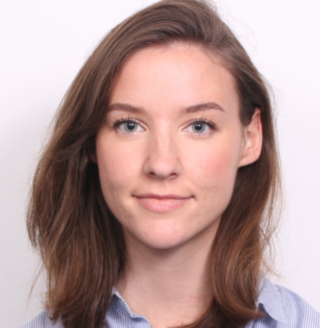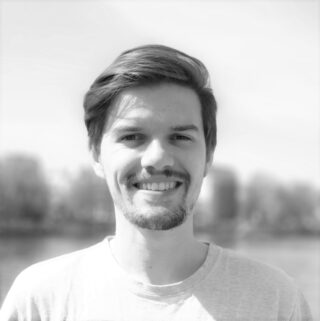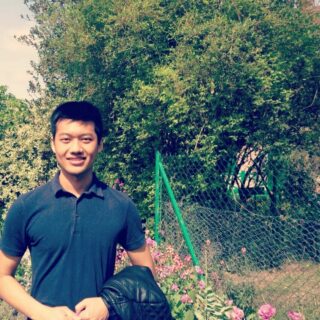Read next
Interview
Research is international
At Fraunhofer IKS, people from a wide variety of countries work on solving complex tasks: Currently we have colleagues from more than 20 different nations. We asked three of them about their experiences of living and working in Germany.



© iStock/georgeclerk
The number of international employees at Fraunhofer IKS has been growing rapidly – something we are very proud of. As an internationally open-minded research organization, Fraunhofer is determined to offer a great working environment for employees from all over the world.
However, working abroad always means leaving your home country behind and getting involved in a new culture. Facing a different language and a different mentality is not always easy and may require a period of adapting. We asked three international employees at Fraunhofer IKS about their experiences of living and working in Munich: Maureen from France, Felippe from Brazil and Yuan from China.
Three questions for three employees
Maureen Monnet from France – Department Dependable Perception & Imaging
Anna-Sophie:
Why did you choose to live and work outside France?
Maureen:
During my master’s degree I did a gap year where I completed several internships – one in Paris, one in Singapore and one in the USA. I wanted to take the opportunity to travel further outside of Europe, to discover different cultures and gain a variety of experiences. I feel like it is a unique moment in your life when you are truly able to travel and live in different countries. I always enjoyed that a lot. Afterwards I applied for Erasmus at the Technical University of Munich. I was there for one year and I really liked it so I decided to stay in the city. Germany provides very good education in general and TUM is a well-known university. I learned German at school for several years and I wanted to take the opportunity to live here and practice my German. Besides, the city of Munich has the perfect location for me because it is so close to the alps and I love to go climbing.

© Fraunhofer IKS
Maureen Monnet, 26 years old, from Lyon, studied engineering with a focus on artificial intelligence and data science. She joined Fraunhofer IKS in 2021.
Anna-Sophie:
So you already spoke German before you joined Fraunhofer IKS?
Maureen:
Yes, I started learning German at school, however if you don’t practice it for a while you lose a lot so I am still learning right now. In the institute I have weekly courses and I also received support to take one-on-one classes to improve my German. But honestly, I feel so much more comfortable speaking English and people here at work speak English very well, so it’s hard to convince myself to switch to German. However, if you live in the country it’s nice to have some knowledge of the language.
Anna-Sophie:
What do you miss most about your home?
Maureen:
The food, for sure. I miss the bread. I miss the Pain au Chocolat in the morning. There are some in Munich, but they are not as good as at home.
Felippe Schmoeller da Roza from Brazil – Department Dependable Perception & Imaging
Anna-Sophie:
Why did you choose to live and work outside Brazil?
Felippe:
That’s a tricky question. Actually, it was more like a coincidence. After I finished my bachelor, I still didn’t see myself working in a company for 40 hours a week, so I decided to enroll in a master program to see if I preferred the academic and research life. And I really did! Afterwards I got the opportunity to apply for a PhD program in Germany and I didn’t have much time to think about it, so I just went for it. I really enjoy doing research and working on these academic problems which I would not get to do in a company. So that’s how I ended up in Germany.

Felippe Schmoeller da Roza, 29 years old, from Florianópolis. He studied engineering and is currently pursuing his PhD. Felippe has been working at Fraunhofer IKS since 2020.
Anna-Sophie:
You have not only moved to another country but even to another continent. Are there a lot of cultural differences?
Felippe:
For sure, many cultural differences! What I noticed first in terms of culture is the way people interact with each other. I think people in Brazil tend to be warmer. It is easier to sit down in a bar and talk to people. I think in Germany people respect your privacy a lot, so they won’t start talking to you if they don’t know you. But if you introduce yourself, you can also make good friends here. In terms of the working life – I guess the biggest difference I can point out is the work-life balance. Here in Germany no one calls me over the weekend to ask for something. In regard to the research, I feel like the research at an institute like Fraunhofer IKS has a real impact. It is better connected to the industry compared to Brazil where most of our research is conducted in universities which is more academic. At Fraunhofer IKS there are many projects involving companies and therefore your ideas can get closer to reality. That is something I really like about doing research here.
Anna-Sophie:
Would you say you already feel at home here in Munich?
Felippe:
Yes, for sure! Of course there are some cons as well. The weather here is obviously very different, but I really like the lifestyle, I would say it’s more chilled. Unfortunately the pandemic started only a few months after I first came to Munich, so it was a bit more difficult to connect with people because I only met my colleagues over video calls. However, I was able to meet lots of friends in the city. There are lots of Brazilians and international people in general and I also met a lot of Germans too. When regulations allow, we’d really like to go to each other’s places and have some barbecues.
Yuan Liao from China – Department Self-Adaptive Software Systems
Anna-Sophie:
Why did you choose to live and work outside China?
Yuan:
When I studied in university in China, most of us wanted to go and study abroad to broaden our mind and enrich our knowledge. At that time, I decided to pursue a dual master's degree with a major in embedded systems in France. I enjoyed that time a lot, I have so many good memories there. During my master’s degree, I completed internships in France and the Netherlands and gained valuable experience in research and the industry. Then I worked in Shanghai for three years for an automotive company and during this time I started to think about what I would like my future career to look like. That's why I started to inform myself about different career opportunities even outside the industry. I found out about a project which I found really interesting: The Marie-Skłodowska-Curie fellowship. This project is what brought me to Munich. The interesting thing about living abroad is that I can connect with different people and share ideas and thoughts, not only in terms of research but also opinions and understandings about politics, art and life in general.

© Yuan Liao
Yuan Liao, 32 years old, from Shanghai, studied embedded systems. Since 2019 he has been working at Fraunhofer IKS as a Marie Skłodowska-Curie-Action-Fellow while pursuing his PhD.
Anna-Sophie:
What kind of fellowship is this exactly? What is it about?
Yuan:
The name of the project is »European Training Network for Safer Autonomous Systems«. It’s a scholarship that includes a PhD program. It’s really interesting because it’s about safe autonomous systems which is an emerging focus in the autonomous field. In my project I am developing a safe adaptive platform for autonomous systems for application scenarios in the industry. The autonomous vehicle is a big trend and I think it will come about in the next few years, so for me a safety related topic in this field is very exciting. I have the chance to really dig deeper and acquire more knowledge. What I particularly like about it is that I have lots of opportunities to communicate with the professors here at the institute and other senior researchers from different countries.
Anna-Sophie:
Do you have some kind of long-term plan after you finish your PhD?
Yuan:
Right now I prefer to just see how things play out. I could imagine working as an industrial expert in the automotive industry in the future. For now I’d like to continue with my current research in the field of anomaly detection of object detectors. I really enjoy the lifestyle in Munich and would like to get to know the city better.
Career at Fraunhofer IKS
Would you like to join our team of researchers and pursue a career in science? Then take a look at our careers page.

